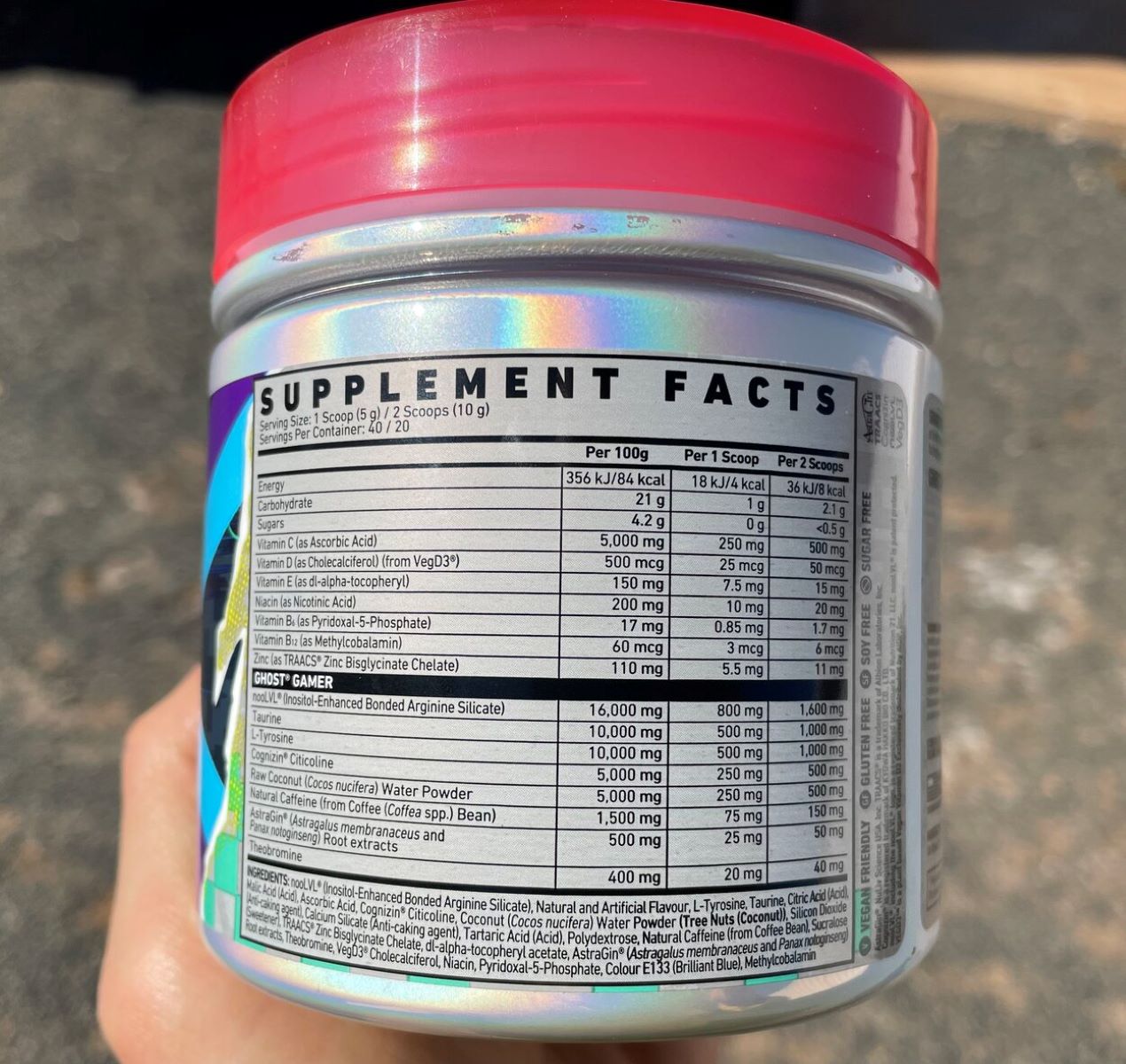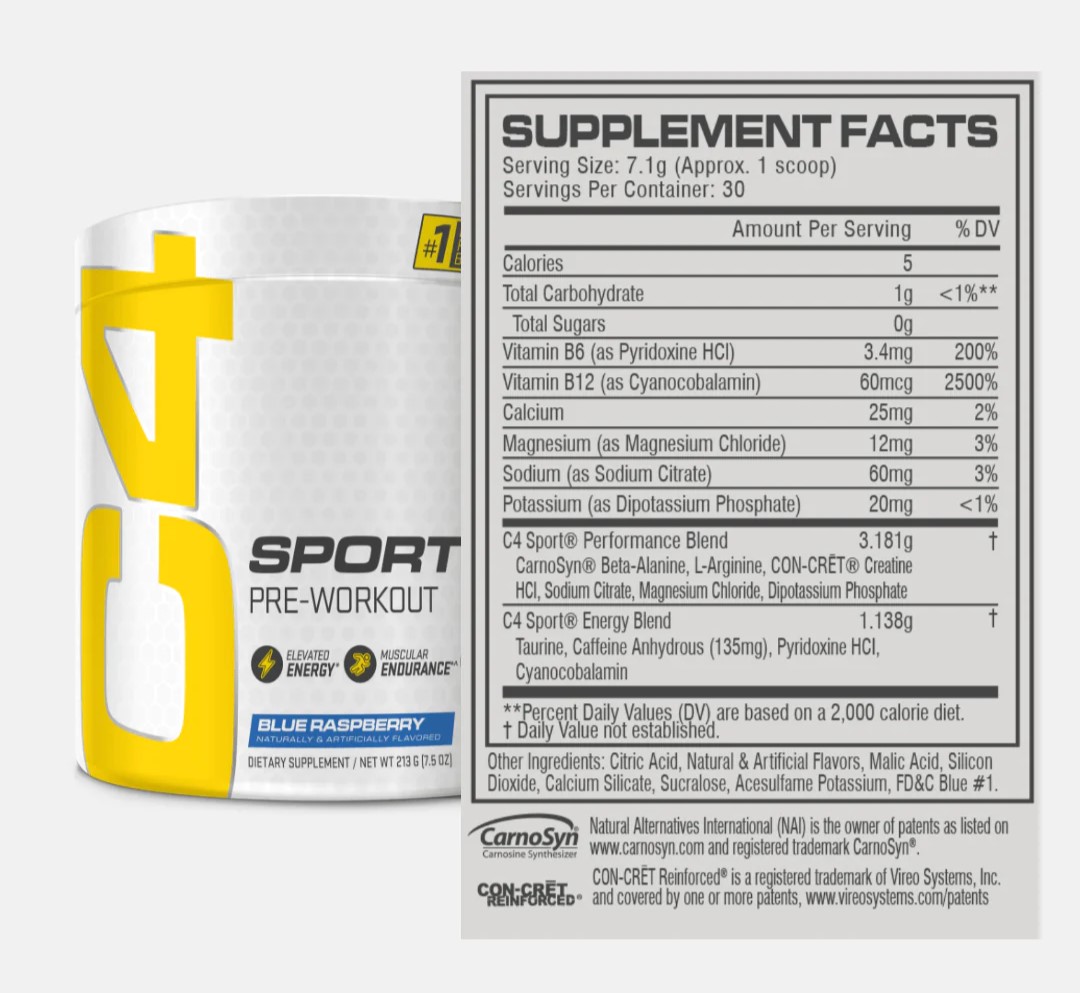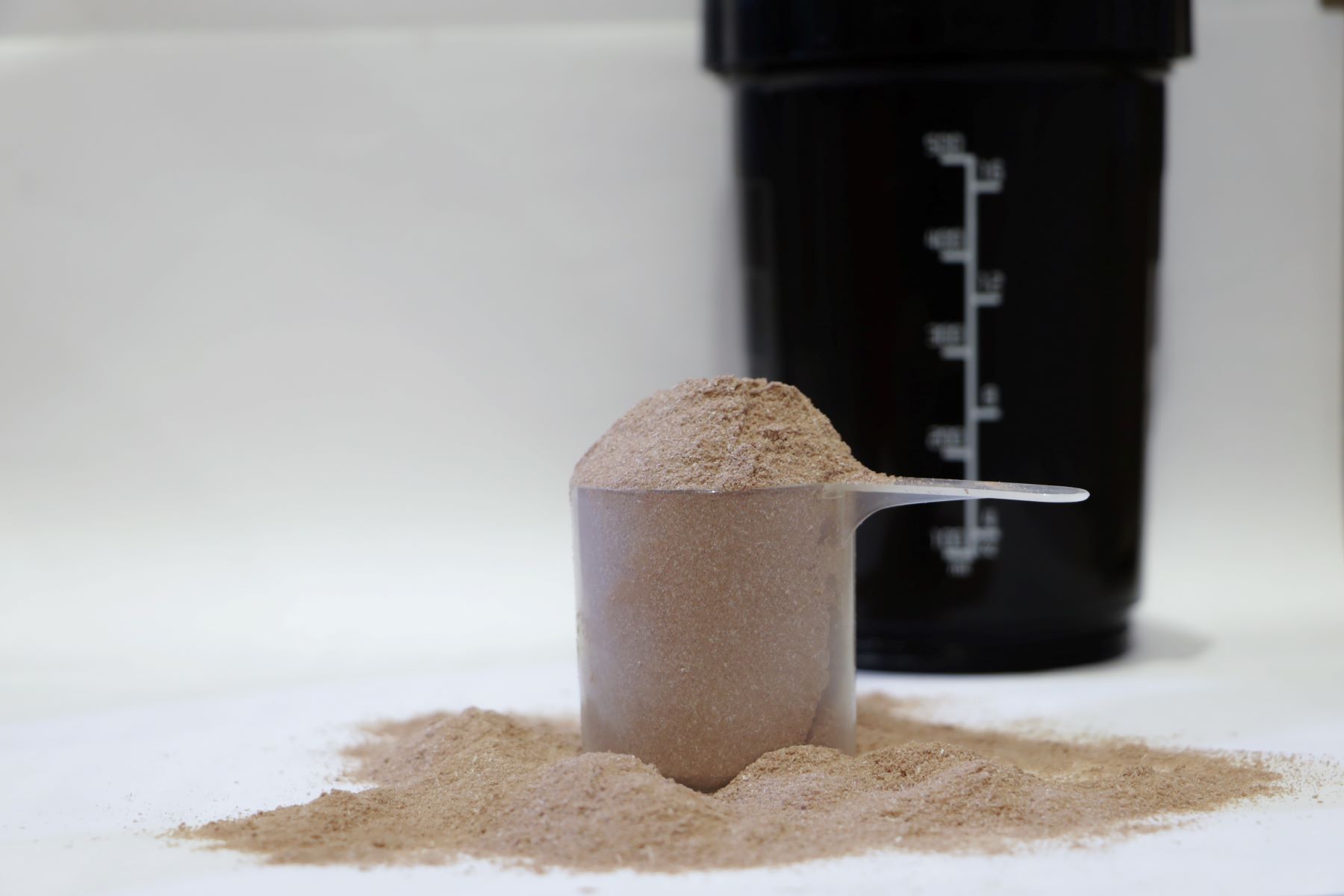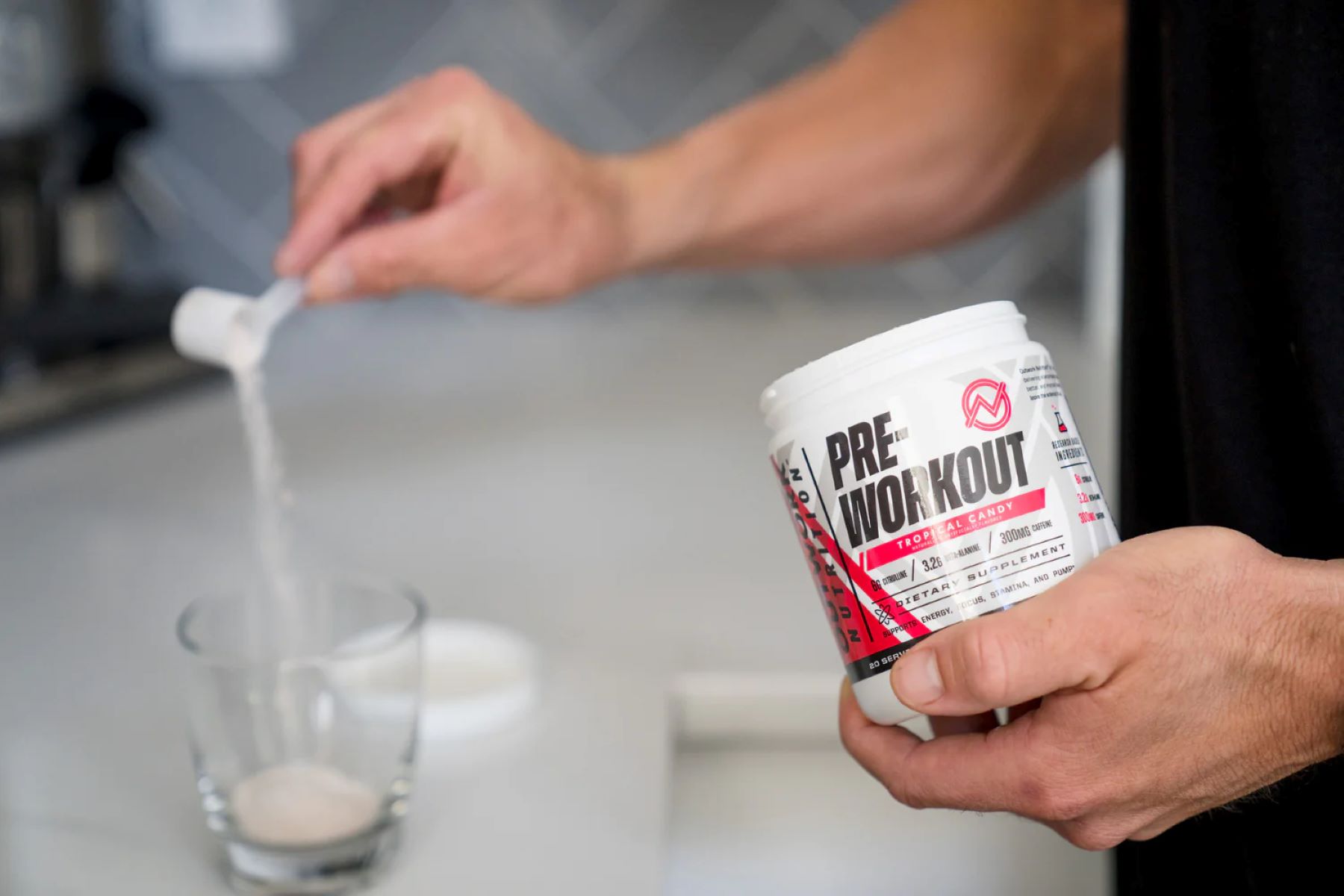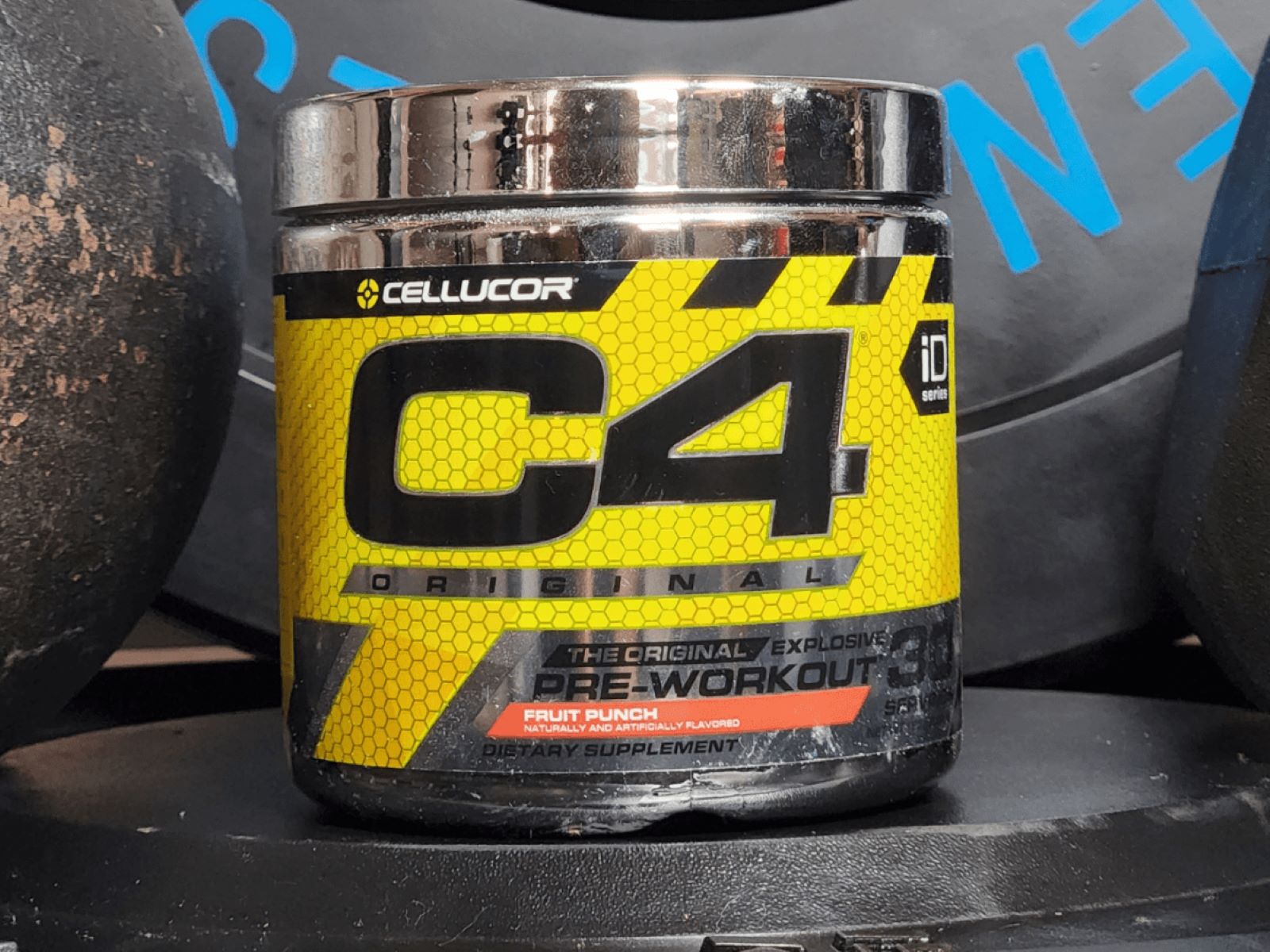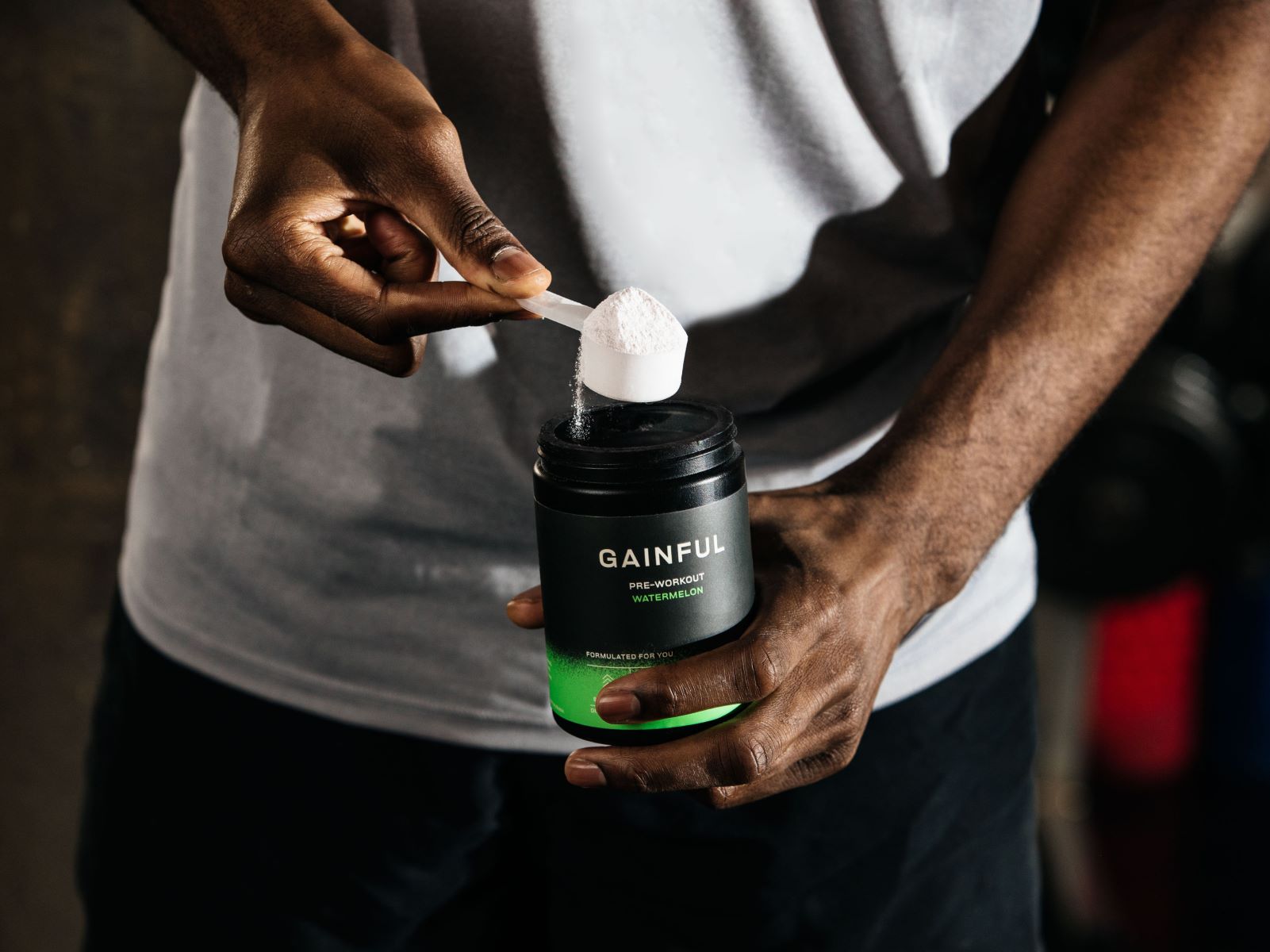

Featured
When Should You Take Your Pre-Workout
Modified: January 2, 2024
Discover the ideal time to take your pre-workout supplement in order to maximize your workout performance. Featured tips and guidance to optimize your fitness routine.
Introduction
When it comes to maximizing your workout performance, many fitness enthusiasts turn to pre-workout supplements to give them an extra boost. Whether you’re an avid lifter, a dedicated runner, or someone looking to improve their overall fitness, incorporating pre-workout into your routine can provide you with the energy and focus you need to push through tough workouts and achieve your fitness goals.
But what exactly is pre-workout? Pre-workout is a specially formulated supplement designed to increase energy levels, enhance mental focus, improve endurance, and promote muscle power during workouts. It typically contains a combination of ingredients such as caffeine, beta-alanine, creatine, and branched-chain amino acids (BCAAs), among others.
The benefits of taking pre-workout supplements are well-known. By providing a surge of energy and improving mental alertness, pre-workout can help you power through intense workouts, allowing you to lift heavier weights, run faster, or push yourself further than ever before. It can also aid in reducing muscle fatigue and increasing muscular endurance, meaning you can perform more reps or continue your workout for longer periods of time.
Additionally, pre-workout can improve focus and concentration. The stimulants in pre-workout help sharpen your mental clarity, enabling you to stay in the zone and maintain a strong mind-muscle connection throughout your training session. This heightened focus can translate into better form, improved technique, and ultimately more effective workouts.
However, it’s important to note that pre-workout supplements may come with some potential side effects. The most common side effect is the jitters or a feeling of restlessness, which is often attributed to the high caffeine content. Some individuals may also experience headaches, digestive issues, or difficulty sleeping if the pre-workout is taken too close to bedtime. It’s crucial to check the label of any pre-workout supplement you’re considering and be aware of your own tolerance to stimulants.
Before diving into pre-workout supplementation, there are a few factors to consider. Firstly, consult with your healthcare professional, particularly if you have any underlying medical conditions or are taking medications that may interact with pre-workout ingredients. It’s also important to understand your own fitness goals and how pre-workout aligns with them. Finally, consider your overall caffeine intake for the day, as excessive consumption may have negative effects on your health.
Now that we’ve covered the basics of pre-workout supplements, let’s delve into the optimal timing for consuming them to reap the maximum benefits.
What is pre-workout?
Pre-workout is a popular term in the fitness community, but what exactly does it mean? Pre-workout refers to a type of dietary supplement that is consumed before a workout or physical activity to enhance performance, increase energy levels, and improve focus.
Pre-workout supplements are typically a combination of various ingredients, carefully formulated to provide a synergistic effect on the body. While the specific ingredients may vary depending on the brand and product, some common ingredients found in pre-workout supplements include:
- Caffeine: Caffeine is a well-known stimulant that helps increase alertness, improve focus, and reduce fatigue. It can provide an immediate energy boost and enhance endurance during workouts.
- Beta-alanine: Beta-alanine is an amino acid that helps to increase muscle endurance by buffering the build-up of lactic acid, delaying the onset of fatigue.
- Creatine: Creatine is a naturally occurring compound that is involved in energy production in the muscles. It can enhance strength, power, and muscle mass when taken as a supplement.
- Branched-chain amino acids (BCAAs): BCAAs, including leucine, isoleucine, and valine, are essential amino acids that are important for muscle protein synthesis and muscle recovery.
- Nitric oxide boosters: These ingredients, such as arginine or citrulline, help to improve blood flow, which can result in increased oxygen and nutrient delivery to the muscles.
Pre-workout supplements are available in various forms, including powders, capsules, or ready-to-drink formulas. The powdered form is often mixed with water or juice and consumed before exercising.
The purpose of pre-workout supplementation is to provide an extra burst of energy, increase stamina, and optimize performance during workouts. By utilizing specific ingredients that target energy production, muscular endurance, and mental focus, pre-workout supplements can help individuals achieve greater intensity and productivity in their training sessions.
It’s important to note that pre-workout supplements are not meant to replace a well-balanced diet or proper training. Instead, they are meant to complement a healthy lifestyle and training regimen by offering an extra edge during workouts.
However, it’s crucial to choose pre-workout supplements wisely. Always read the label and understand the ingredients in the product you’re considering. This will help you determine if it aligns with your personal fitness goals and if it contains any substances that you may have sensitivities or allergies to.
In summary, pre-workout supplements are specially formulated dietary supplements that are taken before a workout or physical activity to enhance performance, increase energy levels, and improve focus. They typically contain a combination of ingredients such as caffeine, beta-alanine, creatine, BCAAs, and nitric oxide boosters. Remember, while pre-workout supplements can be beneficial, they should be used in conjunction with a balanced diet and proper training to optimize results.
Benefits of taking pre-workout
Taking a pre-workout supplement can offer a range of benefits that can enhance your workout experience and help you achieve your fitness goals. Let’s explore some of the key advantages of incorporating pre-workout into your regimen.
Increased energy: One of the primary benefits of pre-workout supplements is their ability to provide an instant boost of energy. The caffeine and other stimulants present in pre-workout formulas help to stimulate the central nervous system, promoting alertness and reducing fatigue. This surge of energy can help you push through tough workouts and maintain a high level of intensity, leading to improved performance in the gym or on the field.
Enhanced endurance: Pre-workout supplements often contain ingredients like beta-alanine that can boost your muscular endurance. Beta-alanine helps to reduce the accumulation of lactic acid in your muscles, delaying the onset of fatigue and allowing you to train harder and longer. This can be especially beneficial during high-intensity exercises or endurance activities.
Improved focus and mental clarity: The combination of caffeine and other nootropic ingredients found in pre-workout supplements can enhance cognitive function, leading to improved focus, concentration, and mental clarity. This heightened mental state can improve mind-muscle connection, allowing you to perform exercises with proper form and technique, ultimately leading to better results.
Increased strength and power: Many pre-workout supplements contain creatine, a compound that has been extensively studied for its ability to enhance strength and power output. Creatine works by replenishing ATP (adenosine triphosphate) levels in the muscles, providing a readily available energy source for intense exercise. This can lead to increased strength, improved performance in weightlifting, and greater power during explosive movements.
Accelerated muscle recovery: Some pre-workout supplements contain ingredients like BCAAs (branched-chain amino acids) that are known for their role in muscle recovery. BCAAs help to reduce muscle protein breakdown, enhance muscle protein synthesis, and promote faster recovery after a challenging workout. This can reduce muscle soreness and allow you to bounce back quicker, ready for your next training session.
Increased metabolism and fat burning: Certain pre-workout supplements contain thermogenic ingredients that can boost your metabolism and promote fat burning. These ingredients, such as green tea extract or capsicum, can increase your body’s calorie expenditure and help you achieve your weight loss goals.
Keep in mind that the specific benefits experienced may vary depending on individual factors such as body composition, fitness level, and training intensity. It’s also essential to choose a pre-workout supplement that aligns with your goals and needs, as different products may have varying ingredient profiles and effects.
Incorporating a pre-workout supplement into your routine can provide you with the energy, focus, and performance enhancement you need to take your workouts to the next level. However, it’s important to remember that pre-workout supplements are not magic potions. They should be used in conjunction with a well-balanced diet, proper training, and overall healthy lifestyle choices to optimize results.
Potential side effects of pre-workout
While pre-workout supplements can offer many benefits, it’s important to be aware of the potential side effects that can occur. These side effects can vary from person to person, and it’s essential to understand your own tolerance and sensitivity to the ingredients in pre-workout supplements. Here are some potential side effects to consider:
Jitters and restlessness: Many pre-workout supplements contain high amounts of caffeine or other stimulants that can cause jitters or a feeling of restlessness. This can make it difficult to focus during your workout and may negatively impact your overall performance.
Headaches: Some individuals may experience headaches as a result of the stimulants present in pre-workout supplements. If you’re prone to headaches or migraines, it’s essential to monitor your response to the supplement and adjust the dosage accordingly.
Digestive issues: Certain pre-workout supplements can lead to digestive discomfort, including upset stomach, bloating, or diarrhea. This can be due to the presence of ingredients such as beta-alanine or certain herbal extracts. It’s important to start with a lower dosage and gradually increase to assess your tolerance and minimize the risk of digestive issues.
Difficulty sleeping: Pre-workout supplements that contain stimulants can interfere with sleep if taken too close to bedtime. Caffeine, in particular, has a half-life of several hours, meaning it can stay in your system and disrupt your sleep even if you take the supplement hours before bedtime. It’s recommended to avoid taking pre-workout within 4-6 hours of your desired sleep time.
Allergic reactions: Some individuals may be sensitive or allergic to certain ingredients in pre-workout supplements, such as artificial sweeteners, coloring agents, or herbal extracts. It’s important to carefully read the label and consult a healthcare professional if you have any known allergies or sensitivities.
Increased heart rate and blood pressure: The stimulants present in pre-workout supplements can cause an increase in heart rate and blood pressure. Individuals with pre-existing cardiovascular conditions or hypertension should exercise caution when considering pre-workout supplementation. It’s always best to consult with your healthcare professional before starting any new supplement regimen.
It’s worth noting that not everyone will experience these side effects, and for many individuals, pre-workout supplements are well-tolerated. However, it’s crucial to listen to your body and pay attention to how you feel after taking a pre-workout supplement. If you experience any severe or concerning side effects, it’s important to discontinue use and seek medical advice.
To minimize the risk of side effects, it’s recommended to start with a lower dosage and gradually increase as needed. It’s also important to follow the recommended serving size and not exceed the recommended daily intake. Additionally, incorporating periods of cycling or taking breaks from pre-workout supplementation can help prevent tolerance build-up and reduce the risk of side effects.
Overall, while pre-workout supplements can be beneficial for boosting performance and energy levels, it’s essential to be aware of the potential side effects. By being mindful of your own tolerance and taking the necessary precautions, you can make informed decisions about pre-workout supplementation and safely enjoy its benefits.
Factors to consider before taking pre-workout
Before incorporating pre-workout supplements into your fitness routine, it’s important to consider several factors to ensure that it aligns with your goals, needs, and overall health. Here are some key factors to consider before taking pre-workout:
Health and medical conditions: It’s crucial to evaluate your overall health and any pre-existing medical conditions you may have before starting a pre-workout supplement. Certain ingredients, such as stimulants or herbal extracts, can have potential interactions with medications or exacerbate certain health conditions like high blood pressure or heart disease. Consulting with a healthcare professional is recommended, especially if you have any underlying health concerns or take medications.
Individual tolerance to stimulants: Pre-workout supplements often contain stimulants like caffeine, which can increase heart rate and blood pressure and may cause jitters or restlessness. It’s important to assess your individual tolerance to stimulants and be mindful of your caffeine intake throughout the day. If you’re sensitive to stimulants, opt for a pre-workout supplement with lower caffeine content or consider stimulant-free alternatives.
Fitness goals: Consider your specific fitness goals and how pre-workout supplementation can support them. Whether you’re aiming to build muscle, enhance endurance, or increase strength, look for a pre-workout supplement that aligns with your objectives. Different products may have varying ingredient profiles and target specific aspects of performance, so choose one that complements your goals.
Caffeine sensitivity: Some individuals are more sensitive to caffeine than others. If you’re particularly sensitive to caffeine or experience adverse effects from consuming it, opt for a pre-workout supplement that is lower in caffeine or choose a caffeine-free option. Additionally, consider the timing of your pre-workout consumption to avoid disrupting your sleep patterns if you’re sensitive to caffeine-induced insomnia.
Training schedule and timing: The timing of pre-workout consumption can significantly impact its effectiveness. Depending on your training schedule and preferences, you may need to plan your pre-workout intake accordingly. Consider whether you prefer to consume it before a morning workout, midday session, or evening training. Additionally, factor in the duration of your workout and the desired effects you want to achieve to determine the optimal timing of your pre-workout supplementation.
Caffeine intake throughout the day: Evaluate your overall caffeine consumption from other sources throughout the day, such as coffee, tea, or other caffeinated beverages. Too much caffeine can lead to negative side effects, including jitteriness, increased heart rate, and difficulty sleeping. If you already consume a significant amount of caffeine, it might be necessary to choose a pre-workout supplement with lower caffeine content or opt for a caffeine-free alternative.
Quality and reputation of the brand: With the plethora of pre-workout supplements available on the market, it’s important to choose a reputable brand that adheres to quality standards. Look for brands that undergo third-party testing and have good reviews from consumers. Research the ingredients they use, their manufacturing processes, and any certifications they hold to ensure that you’re getting a safe and reliable product.
By considering these factors and taking an individualized approach, you can make an informed decision about whether or not to incorporate pre-workout supplements into your fitness routine. Remember, it’s essential to listen to your body, start with lower dosages, and be aware of your own health needs and goals to optimize the benefits and minimize any potential risks associated with pre-workout supplementation.
Timing of pre-workout consumption
Timing is a crucial factor when it comes to maximizing the effectiveness of pre-workout supplements. Consuming your pre-workout at the right time can ensure that you experience the desired energy boost, enhanced focus, and improved performance during your workout. Here are some considerations for the timing of pre-workout consumption:
Pre-workout digestion and absorption: It’s important to allow enough time for your body to digest and absorb the pre-workout supplement before starting your workout. This can vary depending on the form in which you consume the supplement. If you’re taking a pre-workout powder mixed with water or juice, aim to consume it approximately 30 minutes before your workout to allow for optimal absorption. If you’re taking a capsule or tablet form, follow the specific instructions provided by the manufacturer.
Individual tolerance and caffeine sensitivity: Pay attention to your individual tolerance to stimulants, especially if your pre-workout contains caffeine. If you’re more sensitive to caffeine or have a lower tolerance, you may want to consume your pre-workout further in advance to allow for a gradual onset of effects and to prevent any jitters or restlessness during your workout. On the other hand, if you have a higher tolerance to caffeine, you may be able to consume your pre-workout supplement closer to your workout time.
Training duration and intensity: Consider the duration and intensity of your workout when determining the timing of your pre-workout consumption. If you’re engaging in a short, high-intensity workout, such as a high-intensity interval training (HIIT) session or a heavy weightlifting session, consuming your pre-workout approximately 30 minutes before can provide the desired energy boost to power through the workout. For longer duration workouts, such as endurance training or cardio sessions, you may want to consume your pre-workout slightly earlier to allow for sustained energy throughout the workout.
Personal preferences and tolerance: Experiment with different timing strategies to find what works best for your body and personal preferences. Some individuals may prefer to consume their pre-workout closer to their workout time to feel the immediate effects, while others may prefer to take it a bit earlier to allow the stimulants to gradually kick in. Take note of how your body responds to different timing strategies and adjust accordingly.
Avoiding interference with sleep: If you find that consuming pre-workout supplements in the evening disrupts your sleep patterns, it’s best to avoid taking it too close to bedtime. Consider shifting your workouts earlier in the day or opt for a pre-workout supplement that is lower in caffeine or caffeine-free if you train later in the day.
Remember that individual responses may vary, and it’s important to listen to your body and find the timing that works best for you. It may be helpful to start with the recommended timing as suggested by the manufacturer and make adjustments based on your personal experience.
Ultimately, the goal of timing pre-workout consumption is to ensure optimal absorption, energy enhancement, and improved performance during your workout. By experimenting with different timing strategies and considering factors such as digestion, individual tolerance, training duration, and personal preferences, you can find the timing that aligns with your goals and allows you to make the most of your pre-workout supplement.
Best times to take pre-workout
Choosing the best time to take your pre-workout supplement can greatly impact its effectiveness and maximize the benefits you experience during your workouts. While individual preferences and schedules may vary, here are some key recommendations for the best times to take pre-workout:
30 minutes before your workout: Taking your pre-workout supplement approximately 30 minutes prior to your workout is a commonly recommended timing. This allows enough time for your body to digest and absorb the supplement, ensuring that the energizing effects kick in when you need them most during your training. This timing is particularly suitable for workouts that require immediate energy and focus, such as weightlifting sessions or high-intensity interval training (HIIT).
1-2 hours before your workout: Some individuals may prefer to consume their pre-workout supplement a bit earlier, 1-2 hours before their workout. This allows for a more gradual absorption of the supplement, resulting in a sustained release of energy throughout the entire workout. This timing may be preferable for longer duration workouts, such as endurance training or cardio sessions.
Upon waking up: If you prefer to workout in the morning, taking your pre-workout immediately upon waking up can provide a much-needed energy boost to jump-start your day and get you motivated for your workout. This can be especially helpful for individuals who find it challenging to muster up energy in the early hours of the day. However, be mindful of your caffeine sensitivity and any potential interference with your sleep if you choose this timing.
During prolonged workouts: For workouts that extend beyond 90 minutes, such as endurance training or marathon sessions, you may consider taking an additional dose of pre-workout during the workout. This can help replenish your energy levels and maintain focus throughout the prolonged exercise. Be cautious not to exceed the recommended daily intake of your pre-workout supplement and consult with the manufacturer’s guidelines for dosing and timing adjustments.
Personal preference and experimentation: Ultimately, the best time to take pre-workout may vary depending on your personal preferences and how your body responds to different timing strategies. It can be beneficial to experiment with different timings and observe how you feel during your workouts. Take note of the timing that provides you with optimal energy, focus, and performance, and adjust accordingly based on your findings.
Remember that pre-workout supplements are designed to enhance your workouts and provide the necessary energy and focus you need to perform at your best. However, they should always be used in conjunction with a balanced diet, proper training, and overall healthy lifestyle choices for optimal results.
It’s important to note that the specific recommendations may vary depending on the specific brand and formulation of your pre-workout supplement. Always refer to the manufacturer’s guidelines and follow the recommended serving size and timing as indicated on the product packaging.
By considering your individual needs, training goals, and personal preferences, you can determine the best time to take your pre-workout supplement and make the most of its benefits during your workouts.
Conclusion
Incorporating pre-workout supplements into your fitness routine can provide a range of benefits, including increased energy, enhanced focus, improved endurance, and accelerated recovery. However, it’s important to approach pre-workout supplementation with caution and consideration.
Before taking pre-workout supplements, it’s crucial to evaluate factors such as your overall health, individual tolerance to stimulants, fitness goals, and training schedule. Consulting with a healthcare professional can help ensure that pre-workout supplementation is safe and suitable for your specific needs.
When it comes to timing, taking pre-workout approximately 30 minutes before your workout is a common recommendation. However, individual preferences and workout styles may require adjustments. Factors such as digestion, caffeine sensitivity, training duration, and personal preferences should be taken into account to find the optimal timing that delivers the desired effects.
Additionally, being aware of the potential side effects of pre-workout supplements is crucial. Jitters, headaches, digestive issues, difficulty sleeping, increased heart rate, and allergic reactions are among the possible side effects. Taking the necessary precautions, starting with lower dosages, and understanding your own sensitivity and tolerance can help minimize these risks.
Remember that pre-workout supplements are not magic solutions and should be used as a supplement to a well-balanced diet and proper training. They can provide a valuable edge to enhance your workouts and push your performance to the next level, but they are not a substitute for hard work and dedication.
In conclusion, approach pre-workout supplementation with care and consideration. Evaluate your personal needs, consult with professionals if necessary, and listen to your body. By doing so, you can make informed decisions and optimize the benefits of pre-workout supplements, helping you reach your fitness goals and unlock your full potential during your workouts.
